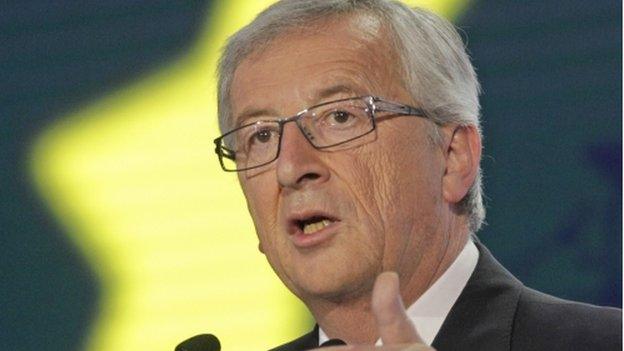Eyes on EU Commission's Juncker as he unveils team
- Published
- comments
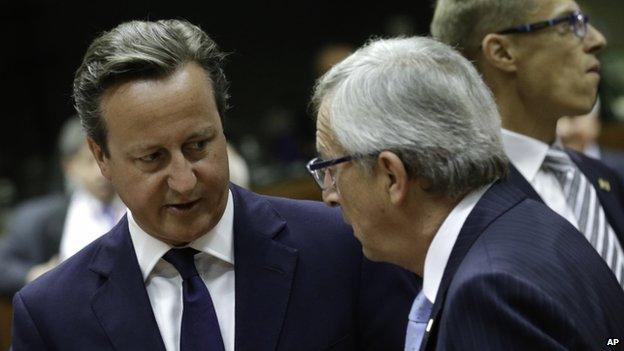
From a British perspective the key question is what job the new Commission chief (R) gives Lord Hill
Some time this week a little-known British politician will be assigned a portfolio in Brussels.
To most people, preoccupied with the future of the United Kingdom, the appointment will attract little attention.
Yet who gets what job in the next European Commission will reveal much about power and priorities at the heart of the European bureaucracy.
The President-elect of the Commission Jean-Claude Juncker, after much lobbying and some consultations, will unveil his team this week.
So what to look out for?
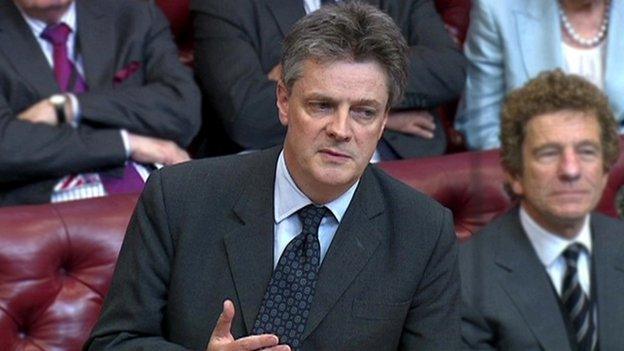
As leader of the UK House of Lords, Jonathan Hill is little known in the EU
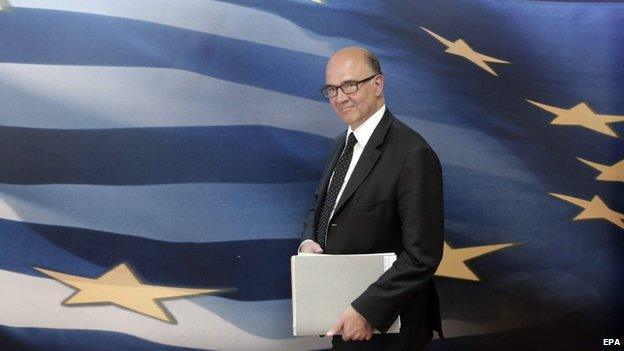
Pierre Moscovici is favourite for the key economic and monetary affairs job
From a British perspective the key question is what job Lord Hill gets and what that tells us about David Cameron's relationship with Mr Juncker, who he very openly opposed.
A commissioner is supposed to act in the European rather than his or her national interest but a well-placed commissioner can and does pass invaluable information back to the home country.
In practice, commissioners defend their national interests but it has to be done with subtlety.
The French candidate for a Commission role, Pierre Moscovici, said that he would "not be an ambassador either of a country or a political party" before saying, of course, he was French.
The College of Commissioners acts as a cabinet and essentially runs the EU's departments originating policy and adjudicating disputes.
In the European political landscape these are powerful people and among the 28 names are four former prime ministers, five former foreign ministers and two ministers for the economy.
Super commissioners
In the past the UK has proposed the names of big political beasts like Roy Jenkins, Leon Brittan, Chris Patten and Peter Mandelson.
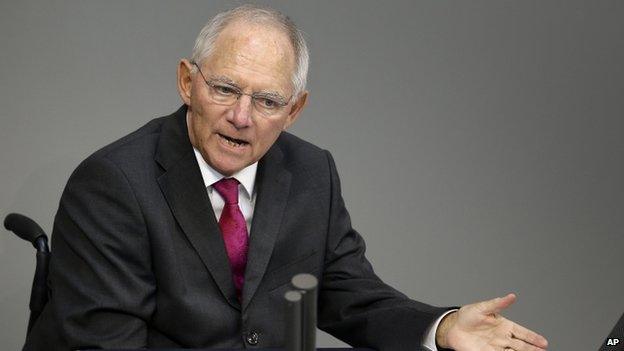
German Finance Minister Wolfgang Schaeuble was opposed to France gaining the key eurozone post
Jonathan Hill, as leader of the House of Lords, is far less known and had reservations about taking the job.
Downing Street wants one of the big economic portfolios like the internal market, trade or competition.
The UK could not expect economic and monetary affairs because it is not in the eurozone.
The UK may be disappointed. Although the Juncker/Cameron relationship is now described as professional there is no inclination to be generous to the Brits.
An early position paper had Lord Hill as the commissioner for energy.
And then there's a complication. Mr Juncker is planning a new breed of super commissioners or vice-presidents who will oversee a clutch of portfolios.
Those six jobs (five, really, because the new High Representative for Foreign Affairs, Federica Mogherini, is a vice-president) will be the inner cabinet.
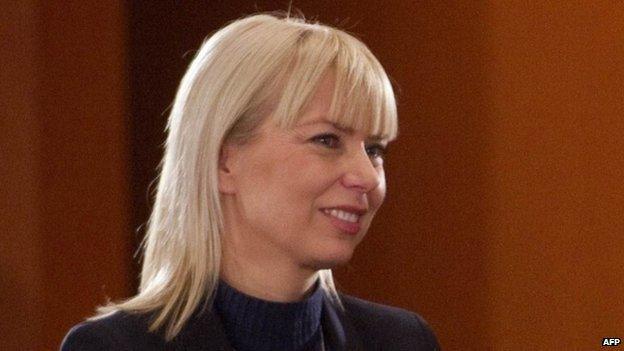
Elzbieta Bienkowska is tipped by Polish PM Donald Tusk to be the new commissioner for the single market
They will be the filterers, the door-keepers and those jobs are likely to go to the former prime ministers or senior political figures.
So it is likely that Jonathan Hill will have to report to a vice-president.
The UK's interest is to protect its economic interests - particularly financial services - and to assess whether it has a good working relationship with the Juncker team.
The announcement this week will also be an indicator of how Mr Juncker will run his Commission.
That matters because next year the UK could begin the process of trying to renegotiate its relationship with the EU.
So who might get the key economic posts? The Polish Prime Minister Donald Tusk has said that the new commissioner for the single market will be his deputy Elzbieta Bienkowska.
The favourite for the key economic and monetary affairs job, which handles the eurozone, is former French Finance Minister Pierre Moscovici.
The Germans had resisted this.
At one stage the powerful German Finance Minister, Wolfgang Schaeuble, said "one aspect is, of course, how the public, and not just in France but in all of Europe, would react if such a post, if such a situation were filled with a French candidate, of all things".
What Mr Schaeuble did not like was that since 2008 France has not once presented a budget that conforms to the deficit rules.
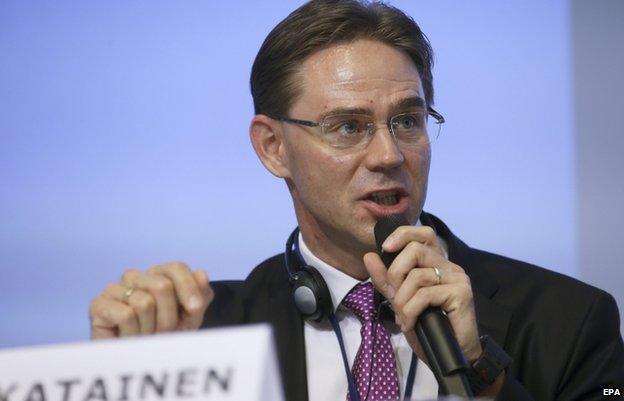
Former Finnish PM Jyrki Katainen has had the post of Economic and Monetary Affairs Commissioner
But Angela Merkel seems to have softened her opposition and, in part, that may be because the man overseeing the budget portfolios could be Jyrki Katainen, the former Finish prime minister and someone regarded as a budget disciplinarian.
To a degree these are the ins and outs of EU politics but they will impinge on the big argument that has to be settled this autumn.
And that is over the eurozone economy.
In exchange for a commitment to deep structural reforms of the labour market, will countries like Italy and France be given more flexibility over their budget deficits?
President Hollande wants Angela Merkel to loosen the stability rules and to open up more space for economic stimulus.
The Italians are pushing for certain investments to be removed from calculating their deficit. The signs are that Mr Juncker is in the flexibility camp, leaving the German chancellor more isolated.
Many insiders will be analysing the Juncker team for any clues as where the new commission stands on the key decisions that have to be taken on the budget rules and the eurozone over the next few months.
- Published5 September 2014
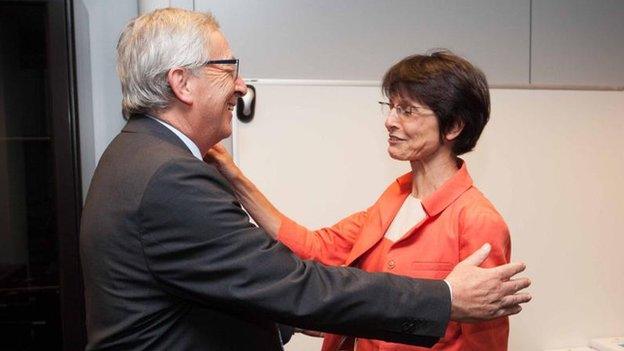
- Published30 August 2014
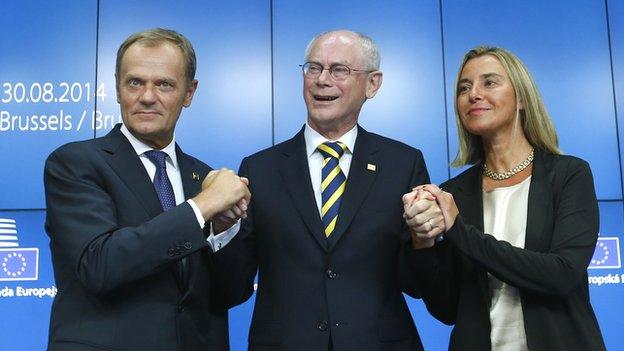
- Published30 August 2014
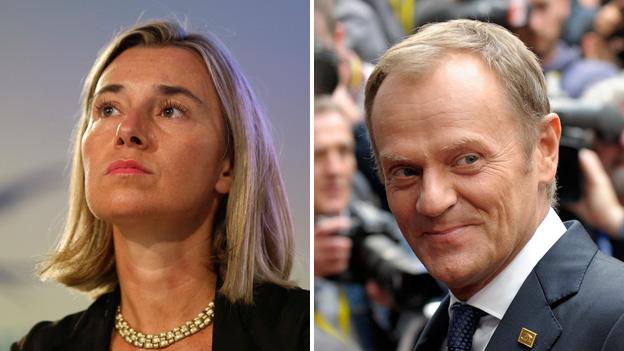
- Published26 August 2014
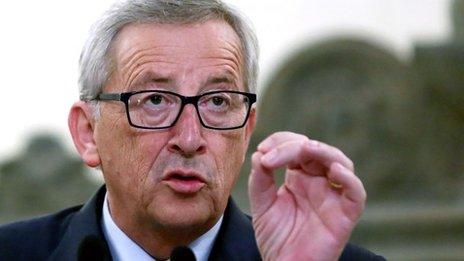
- Published15 July 2014
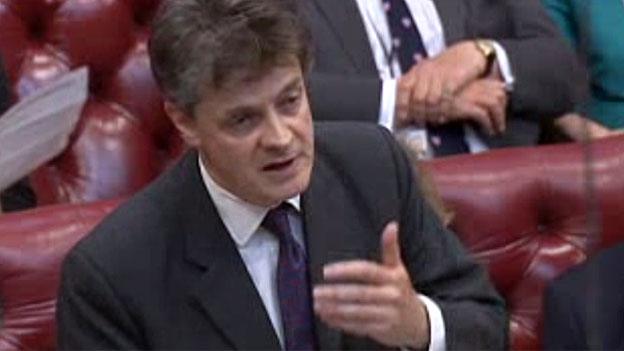
- Published15 July 2014
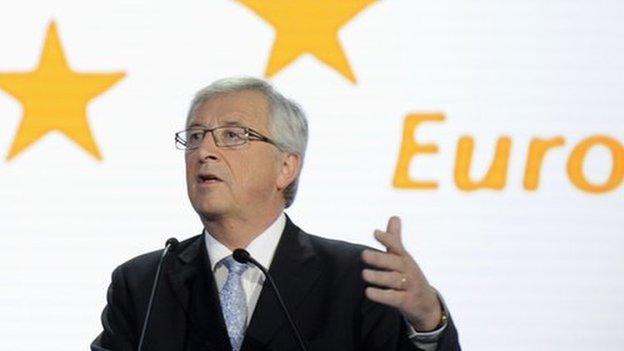
- Published30 June 2014
